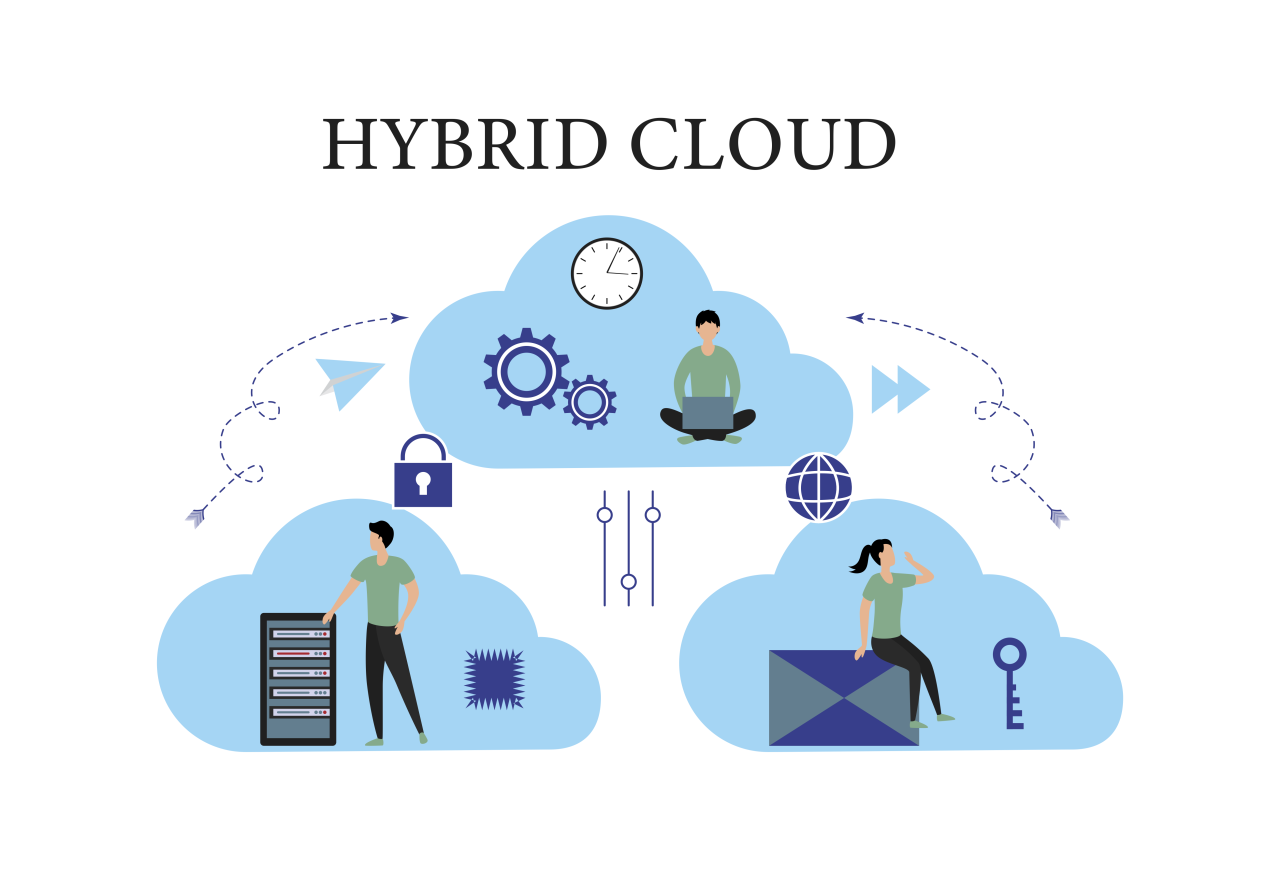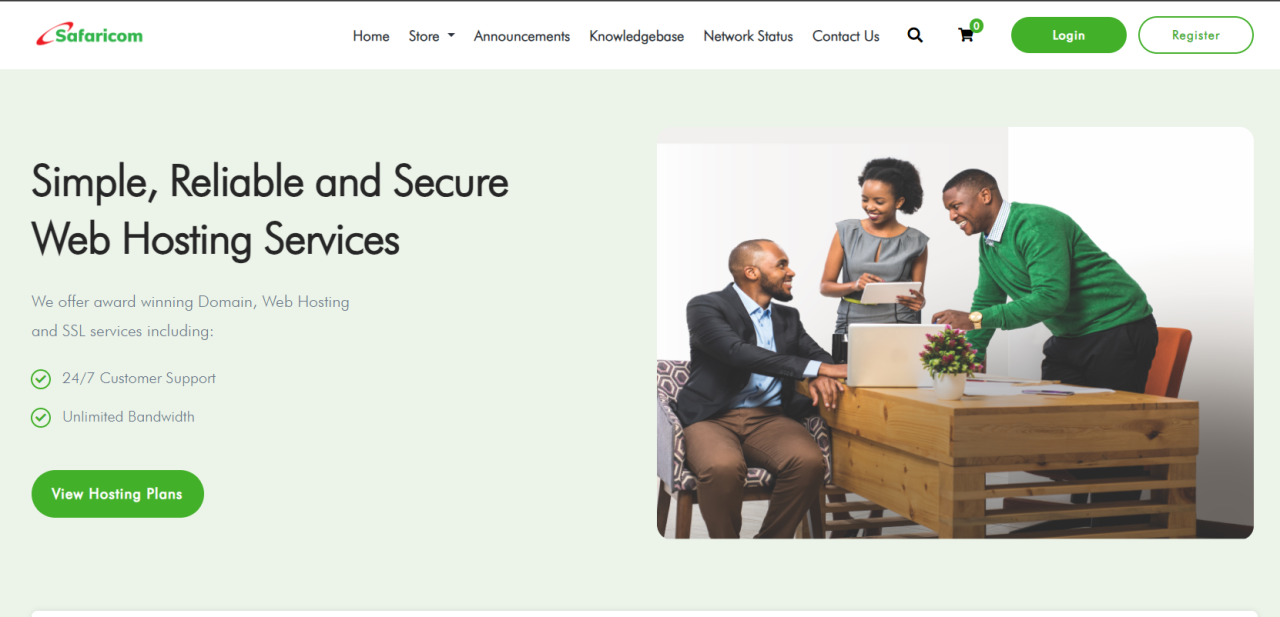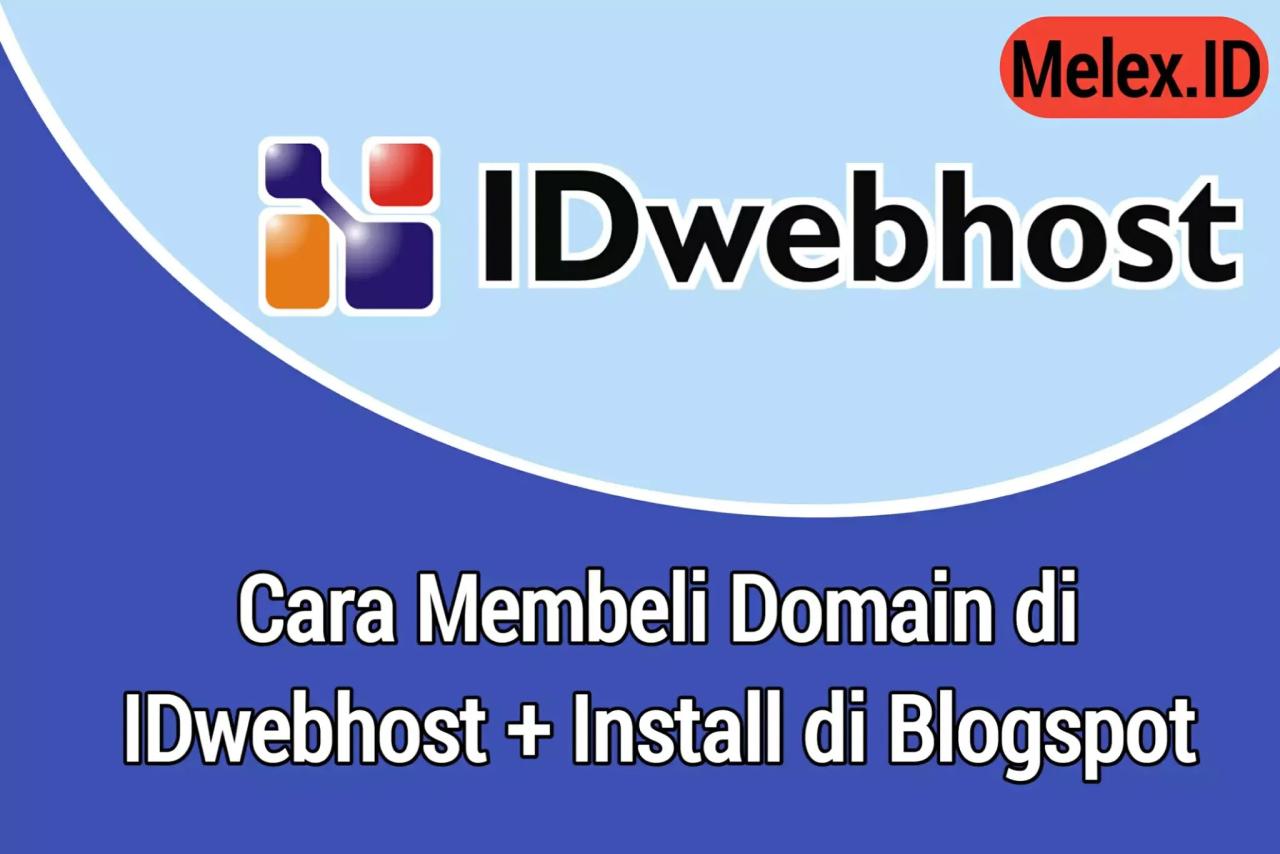Cheap hosting packages can be a tempting option for website owners looking to save money, but it’s essential to understand the trade-offs involved. This guide explores the world of budget-friendly web hosting, diving into the different types, key considerations, and tips for optimizing performance and security.
From shared hosting to cloud solutions, we’ll examine the pros and cons of each type, helping you make an informed decision based on your specific needs and budget. We’ll also discuss how to choose a reliable provider, evaluate hosting packages, and ensure your website runs smoothly even on a limited budget.
Understanding “Cheap” Hosting
The term “cheap” hosting is often used to describe web hosting plans that come at a lower price point compared to others. While this might seem like a good deal at first glance, it’s essential to understand that “cheap” hosting comes with its own set of considerations and potential trade-offs.
Factors Influencing Hosting Price
The price of a web hosting plan is influenced by various factors.
- Resources: The amount of storage space, bandwidth, and processing power (CPU) offered directly impacts the price. More resources typically mean higher costs.
- Features: The features included in a plan, such as databases, email accounts, and security tools, also affect the price. Plans with more features tend to be more expensive.
- Server Location: Hosting providers often have servers in different geographic locations. The location of the server can influence the price, with some locations being more expensive than others.
- Support: The level of customer support offered can also impact the price. Plans with 24/7 support and faster response times usually cost more.
- Scalability: The ability to easily scale your resources as your website grows is another factor. Plans with more flexible scaling options often come at a higher price.
Potential Trade-offs with Cheap Hosting
Cheap hosting plans often involve trade-offs, which can impact your website’s performance, reliability, and security.
- Limited Resources: Cheap plans may offer limited storage space, bandwidth, and CPU power. This can lead to slow loading times and performance issues, especially if your website receives a lot of traffic.
- Fewer Features: Cheap plans might lack essential features like regular backups, security tools, and advanced website management tools. This can increase the risk of data loss, security breaches, and website downtime.
- Lower Quality Support: Cheap hosting providers often offer limited customer support, with longer response times and less technical expertise. This can make it difficult to resolve technical issues promptly.
- Limited Scalability: Cheap plans might not offer flexible scaling options, making it challenging to accommodate website growth without switching to a more expensive plan.
- Reliability Concerns: Some cheap hosting providers might have lower uptime guarantees and more frequent server outages, which can negatively impact your website’s availability.
Common Features Limited or Absent in Cheap Plans, Cheap hosting packages
Here are some examples of common features that might be limited or absent in cheap hosting plans:
- Storage Space: Cheap plans often offer limited storage space, which can quickly fill up if your website has a lot of images, videos, or other large files.
- Bandwidth: Bandwidth refers to the amount of data that can be transferred to and from your website. Cheap plans may have limited bandwidth, which can lead to slow loading times or even website outages if your website receives a lot of traffic.
- Databases: Databases are essential for storing website data, such as user information and product catalogs. Cheap plans may offer limited database storage or features, which can hinder your website’s functionality.
- Email Accounts: Cheap plans may provide a limited number of email accounts or offer only basic email features. This can be a problem if you need to manage multiple email addresses or require advanced email features like spam filtering.
- Security Features: Cheap plans often lack robust security features like firewalls, malware protection, and SSL certificates. This can leave your website vulnerable to security threats and data breaches.
- Customer Support: Cheap hosting providers often offer limited customer support, with longer response times and less technical expertise. This can make it difficult to resolve technical issues promptly.
Popular Cheap Hosting Providers
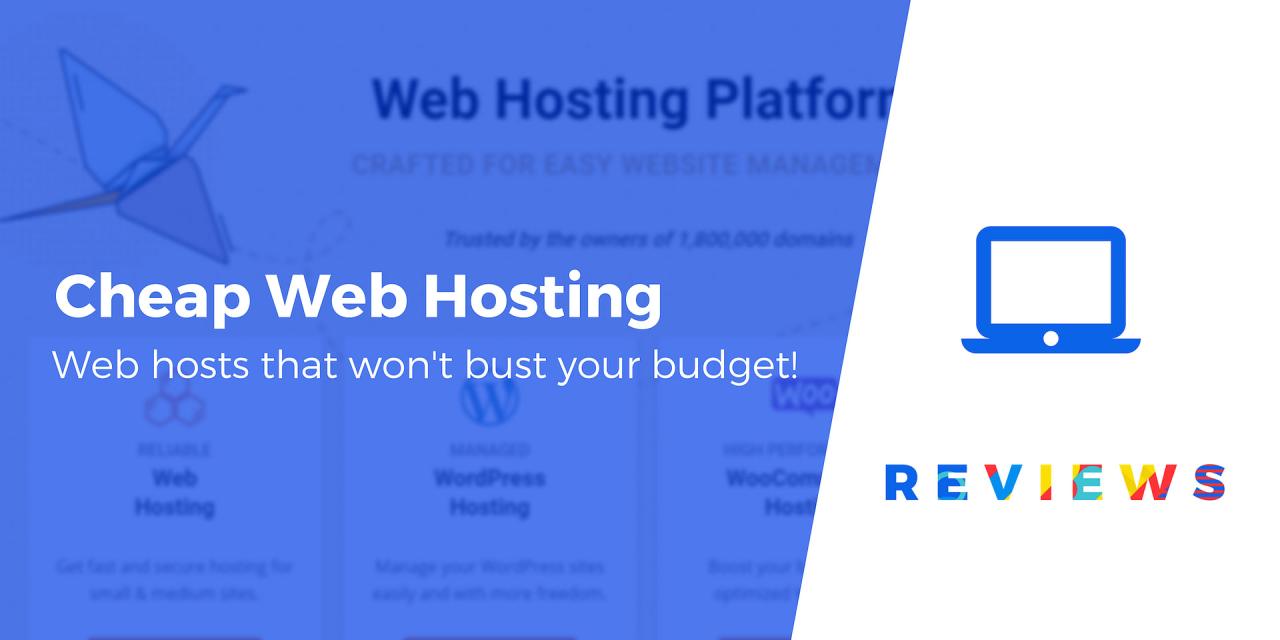
Finding the right hosting provider for your website can be a daunting task, especially when you’re on a tight budget. Luckily, there are several reputable and affordable options available that offer excellent performance and features without breaking the bank.
Popular Cheap Hosting Providers
This section explores some of the most popular and reputable cheap hosting providers. These providers are known for their affordability, reliability, and user-friendly interfaces, making them suitable for individuals, small businesses, and bloggers.
- Hostinger: Hostinger is a popular choice for budget-conscious users, offering a wide range of hosting plans at very affordable prices. Their strengths include:
- Low prices: Hostinger’s plans start at just a few dollars per month, making them one of the most affordable hosting providers available.
- Reliable performance: Hostinger’s servers are known for their speed and uptime, ensuring your website is always accessible to visitors.
- User-friendly control panel: Hostinger’s control panel is intuitive and easy to navigate, even for beginners.
Hostinger is an excellent choice for individuals, bloggers, and small businesses looking for a budget-friendly and reliable hosting solution.
- Bluehost: Bluehost is another popular choice for cheap hosting, offering a wide range of plans with features suitable for different needs. Bluehost’s strengths include:
- Free domain name: Bluehost offers a free domain name with their hosting plans, saving you money on your website’s registration.
- Excellent customer support: Bluehost provides 24/7 customer support via phone, email, and live chat, ensuring you always have assistance when needed.
- WordPress integration: Bluehost is officially recommended by WordPress and offers optimized plans for WordPress websites.
Bluehost is a great option for individuals, bloggers, and small businesses who want a reliable and user-friendly hosting solution with excellent customer support.
- Namecheap: Namecheap is primarily known for its domain name registration services, but they also offer affordable hosting plans. Namecheap’s strengths include:
- Competitive pricing: Namecheap’s hosting plans are competitively priced and offer good value for money.
- Solid performance: Namecheap’s servers provide reliable performance and uptime, ensuring your website is always accessible.
- Easy-to-use control panel: Namecheap’s control panel is user-friendly and straightforward to navigate.
Namecheap is a suitable choice for individuals, bloggers, and small businesses looking for affordable and reliable hosting with a focus on domain name registration.
- DreamHost: DreamHost is a popular choice for individuals and small businesses who need a reliable and feature-rich hosting solution. DreamHost’s strengths include:
- Unlimited bandwidth and storage: DreamHost’s shared hosting plans offer unlimited bandwidth and storage, allowing you to grow your website without worrying about resource limitations.
- Free website migration: DreamHost offers free website migration services, making it easy to switch from another hosting provider.
- Excellent customer support: DreamHost provides 24/7 customer support via phone, email, and live chat, ensuring you have assistance whenever you need it.
DreamHost is a great option for individuals and small businesses who need a reliable and feature-rich hosting solution with excellent customer support.
- InMotion Hosting: InMotion Hosting is a reputable hosting provider known for its reliability and high-quality customer support. InMotion Hosting’s strengths include:
- Excellent customer support: InMotion Hosting provides 24/7 customer support via phone, email, and live chat, ensuring you always have assistance when needed.
- Reliable performance: InMotion Hosting’s servers are known for their speed and uptime, ensuring your website is always accessible to visitors.
- Data centers in multiple locations: InMotion Hosting has data centers in multiple locations, allowing you to choose a server location that is closest to your target audience.
InMotion Hosting is an excellent choice for individuals, bloggers, and small businesses who need a reliable and feature-rich hosting solution with excellent customer support.
Comparing Cheap Hosting Providers
To help you choose the right cheap hosting provider for your needs, here’s a table comparing the pricing, features, and customer support offered by each provider:
| Provider | Price (per month) | Features | Customer Support |
|---|---|---|---|
| Hostinger | $0.99 – $7.99 | Unlimited bandwidth, storage, and email accounts; free website builder; cPanel control panel; 30-day money-back guarantee | 24/7 live chat, email, and ticket support |
| Bluehost | $2.95 – $13.95 | Free domain name; unlimited bandwidth and storage; free SSL certificate; cPanel control panel; 30-day money-back guarantee | 24/7 phone, email, and live chat support |
| Namecheap | $2.88 – $8.88 | Unlimited bandwidth and storage; free SSL certificate; cPanel control panel; 30-day money-back guarantee | 24/7 live chat and email support |
| DreamHost | $2.59 – $10.95 | Unlimited bandwidth and storage; free website migration; free SSL certificate; cPanel control panel; 100-day money-back guarantee | 24/7 phone, email, and live chat support |
| InMotion Hosting | $3.99 – $15.99 | Unlimited bandwidth and storage; free SSL certificate; cPanel control panel; 90-day money-back guarantee | 24/7 phone, email, and live chat support |
Assessing Hosting Packages
While the lure of cheap hosting is undeniable, it’s crucial to ensure that “cheap” doesn’t translate to compromised quality or features that fall short of your website’s needs. This section explores key factors to consider when evaluating a cheap hosting package to ensure you’re making a smart and informed decision.
Evaluating Cheap Hosting Packages
To determine if a cheap hosting plan is the right fit, consider these factors:
- Website Traffic: Assess your projected website traffic. A cheap shared hosting plan might be sufficient for a personal blog with low traffic, but a high-traffic e-commerce website might require a more robust VPS or dedicated server for optimal performance and reliability.
- Storage Space and Bandwidth: Evaluate the storage space and bandwidth offered by the hosting package. Ensure they meet your website’s current and projected storage needs. If you plan to upload large files or host multimedia content, prioritize plans with generous storage and bandwidth allocations.
- Security Features: Security is paramount, especially for websites that handle sensitive information. Look for hosting providers that offer robust security features such as firewalls, malware protection, and regular security updates. While cheap hosting plans might not always include comprehensive security features, consider investing in additional security measures if necessary.
- Customer Support: Reliable customer support is crucial, especially when encountering technical issues. Investigate the availability and responsiveness of the hosting provider’s support channels. Look for providers with 24/7 support, live chat, and comprehensive documentation.
- Scalability: As your website grows, your hosting needs might evolve. Choose a hosting provider that offers scalable plans to accommodate future growth. This ensures you can easily upgrade your plan without encountering performance bottlenecks.
- Uptime Guarantee: Website uptime is critical for user experience and search engine rankings. Look for hosting providers with a high uptime guarantee (typically 99.9% or higher). A reliable uptime guarantee minimizes website downtime and ensures consistent accessibility for visitors.
Reading Reviews and Comparing Value
It’s essential to research and compare different hosting providers before making a decision. Read reviews from other users to gain insights into the provider’s reliability, customer support, and overall performance. Compare pricing against the features and resources offered by each provider to determine the best value for your investment.
Determining Suitability
To determine if a cheap hosting plan meets your specific website needs, ask yourself:
- What are my website’s core functionalities? Do I need advanced features like database support, email hosting, or SSL certificates? If so, ensure the hosting plan includes these features.
- What are my budget constraints? While cheap hosting plans can be attractive, consider the long-term costs associated with upgrading your plan if your website’s needs evolve.
- What are my website’s performance expectations? Do I need fast loading times, high uptime, and reliable performance? Consider these factors when evaluating hosting plans, as cheap plans might not always offer the best performance.
Optimizing for Performance
Even with a budget hosting plan, you can still optimize your website for speed and performance. This is crucial for user experience and .
Caching Plugins
Caching plugins are a simple yet powerful way to improve website performance. They store copies of your website’s content on the user’s browser or server, reducing the need to load the entire website from scratch each time a visitor accesses it. Popular caching plugins include:
- WP Super Cache
- W3 Total Cache
- WP Rocket
These plugins offer various caching options, including page caching, browser caching, and object caching. By enabling caching, you can significantly reduce server load and improve page load times.
Content Delivery Networks (CDNs)
CDNs are networks of servers distributed globally. When a user requests content from your website, the CDN delivers it from the server closest to the user’s location. This reduces latency and improves loading speeds, especially for users located far from your server. Popular CDN providers include:
- Cloudflare
- Amazon CloudFront
- Fastly
CDNs are particularly beneficial for websites with a large amount of static content, such as images and videos.
Minimizing Resource Usage
Code optimization and image compression can significantly reduce your website’s resource usage, leading to faster loading times.
Code Optimization
- Minify HTML, CSS, and JavaScript files to remove unnecessary whitespace and comments.
- Use a CSS preprocessor like Sass or Less to write more efficient and maintainable CSS code.
- Lazy load images, which only load images when they are visible on the screen.
- Optimize your database queries to improve the efficiency of your website’s database interactions.
Image Compression
- Use a lossy compression format like JPEG for photographs.
- Use a lossless compression format like PNG for images with sharp edges or text.
- Optimize images for web use by reducing their file size without compromising quality.
- Use a tool like TinyPNG or Kraken to compress images online.
Scaling Your Website
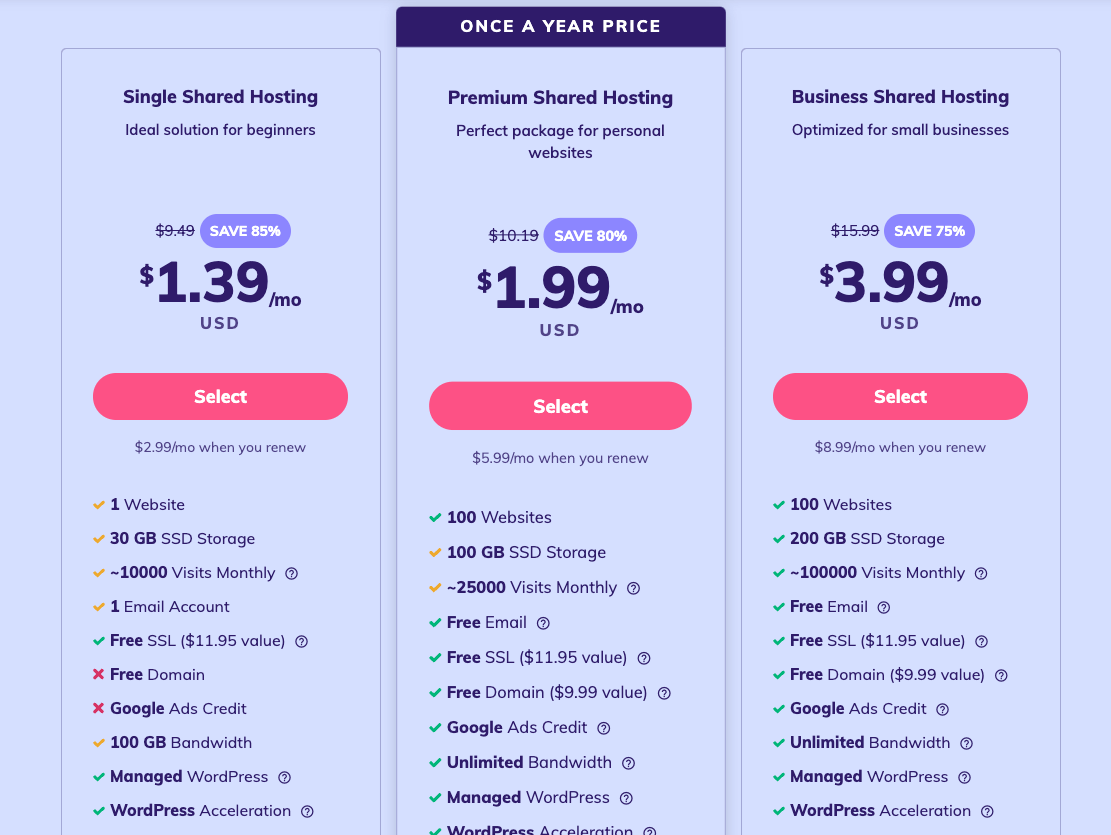
As your website gains traction and attracts more visitors, you’ll likely need to scale your hosting to accommodate the increased traffic and resource demands. Scaling your website doesn’t have to break the bank, especially if you’re on a budget. There are strategic approaches and affordable options to ensure your website continues to perform smoothly as it grows.
Upgrading Your Hosting Plan
Upgrading your hosting plan is a straightforward way to scale your website. As your needs evolve, you can switch to a more powerful plan with increased resources like storage, bandwidth, and processing power. Most hosting providers offer a range of plans to suit different website sizes and traffic levels.
- Shared Hosting to VPS: If your shared hosting plan starts to feel cramped, consider moving to a Virtual Private Server (VPS). VPS provides dedicated resources and more control over your server environment, allowing for better performance and scalability. For example, a popular budget-friendly VPS provider like HostGator offers plans starting at around $5 per month, providing more power and flexibility than shared hosting.
- VPS to Dedicated Server: For websites with extremely high traffic or demanding applications, a dedicated server might be the next step. A dedicated server gives you complete control over the entire server, offering the highest level of performance and security. However, dedicated servers are significantly more expensive than shared hosting or VPS, so they are typically reserved for websites that require maximum power and customization.
Transitioning Seamlessly to a Higher Plan
Transitioning from a cheap plan to a more powerful option can be done smoothly with careful planning. Here are some key steps to ensure a seamless transition:
- Choose the Right Plan: Carefully evaluate your website’s needs and choose a plan that provides enough resources to accommodate your anticipated growth. Research different providers and compare their features and pricing.
- Backup Your Website: Before making any changes, create a full backup of your website files and database. This ensures that you have a safety net in case anything goes wrong during the transition.
- Migrate Your Website: Most hosting providers offer migration services to help you move your website to a new plan. If you’re comfortable with technical tasks, you can also migrate your website manually using tools like cPanel.
- Test and Monitor: After the migration, thoroughly test your website to ensure everything is working correctly. Monitor your website’s performance closely in the new environment to identify any potential issues and make adjustments as needed.
Conclusion: Cheap Hosting Packages
Ultimately, the success of your website hinges on finding the right balance between affordability and performance. By understanding the nuances of cheap hosting, you can make informed choices, optimize your website, and achieve your online goals without breaking the bank. Remember, a well-chosen cheap hosting plan can be a valuable asset, providing a solid foundation for your online presence.


